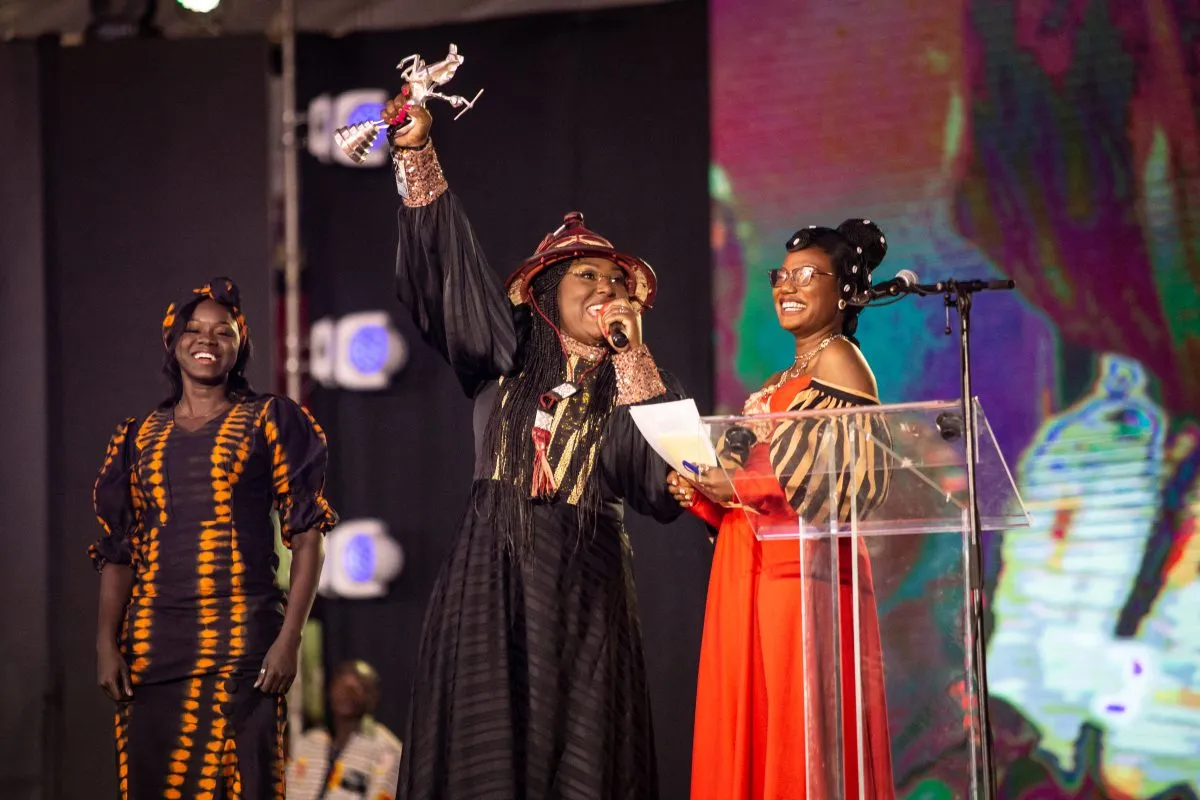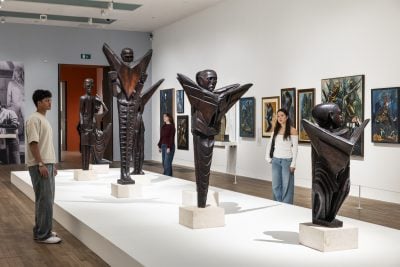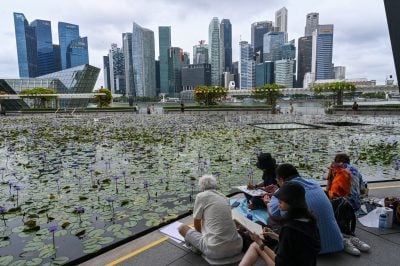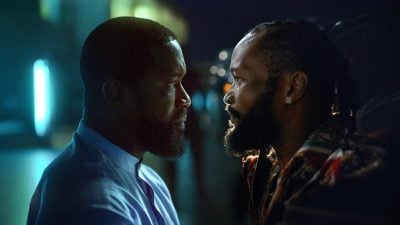The red carpet is unrolled and beaming guests, dressed to the nines, are strolling up and down, smiling at the cameras and greeting fans. This scene is not the Oscars, but the 32nd Pan African Film & Arts Festival – held in Los Angeles, California from 6 to 19 February.
Established in 1992, the festival was founded by Danny Glover, the late Ja’Net DuBois, and Ayuko Babu to be the international beacon for the diaspora arts community, preserve the cinematic creativity of pan-African culture and tell its untold stories. Held annually, it brings together the biggest names in the world of African cinema for a celebration of talent and success. Yet the red carpet in 2024 bears one remarkable difference to 1992, and to the festival’s formative years in the 1990s and early 2000s, when the process of creating films from behind the camera was a singularly male-dominated space.
Today, strolling among actors and actresses are talented female directors from across the continent, whose work will be screened to audiences during the week-long festival. One filmmaker and producer whose star power is on an extraordinary upward trajectory is Apolline Traoré (pictured above). Her film Sira, which came out in 2023, explores the story of a young woman who is abducted alongside her family by Islamist terrorists while travelling to her wedding. Described as a “stunning tale of survival, female courage, resilience, and revenge,” Sira has been lauded with industry accolades since its release, winning the Berlinale Panorama Award for Best Feature, and being chosen as Burkina Faso’s entrant for Best International Feature Film Submission for the 2024 Oscars.
A story of resistance
Speaking to Okay Africa magazine last year, Traoré described her work as “a story of resistance, of never giving up”. This seems a case of art reflecting life as she, born in Burkina Faso in 1976, was inspired to write Sira after being shocked by the news of a massacre that claimed the lives of over 160 people from one village. She set out to scout locations in Burkina Faso and local actors to participate in the film, determined to create the film in the area where the attacks were happening, but the shooting was ultimately shut down and relocated to Mauritania. Nevertheless, Traoré was determined that the stories of the Burkinabès would be told, particularly women, whose voices she believed aren’t heard during war.
“In refugee camps, women are in such a state of vulnerability – they’ve seen so much, been through so much, done so much and crossed so much. They don’t get to talk about how they got there; many of them with kids on their backs. It was important for me to show that perspective internationally of how women are surviving this.”
So what is behind this growing group of female filmmakers changing the identity of African cinema? African female directors use the powerful medium of film to showcase the unspoken stories of gender inequality and abuse that African women face. In an affinity between filmmaker and subject, these stories are about women and are written by women.
Also using the medium of films to convey the horrors of terrorism in her country is Nigerien filmmaker Amina Abdoulaye Mamani. Her film Envoy of God tells the story of a young girl who is kidnapped by jihadists who plan to use her to carry out a suicide attack on a market. In an interview with Agence FrancePresse, Mamani said that she wanted to show the power of women in the face of the jihadist violence that is affecting her country.
“Terrorists use women,” says Mamani. “Men get killed, but women are kidnapped, forced into marriage, raped, and young girls are selected to blow themselves up.”
Unexpected news
Buoyed by the screening of her feature debut at the Pan African Film & Arts Festival, Kambili Ofili is a self-taught filmmaker and writer, born in Lagos and raised in London. Her Shaping Us explores the experience of pregnancy from the perspective of a modern-day African woman, including childbearing difficulties and its effect on relationships. It follows an African couple who, after years of trying, fall pregnant: the results of a paternity test, received during a dinner party, lead to the unravelling of the celebrations and the group’s dynamic. As well as directing the film, Ofili also appears as the main female lead Ara, whose pregnancy is the catalyst for the film’s plot.
In a directorial statement, Ofili says that “as a filmmaker, I’ve drawn from my own observations and personal connections to craft an authentic narrative that invites audiences to reflect on their own journeys of shaping and being shaped by life.”
It isn’t just at the Pan African Film & Arts Festival where female African directors are receiving extraordinary acclaim for their revolutionary visionary works. Mosunmola “Mo” Abudu has been described by Forbes as Africa’s most successful woman producer. She produced The Wedding Party, which was formerly the highestgrossing Nollywood film, and is the founder and CEO of EbonyLife Media, a Nigerian media conglomerate that has signed deals with Netflix, Sony Pictures, BBC Studios, and Will Smith and Jada Pinkett Smith’s Westbrook Studios, for the production of multiple films and television series set in or connected to Africa.
Wanuri Kahiu is a Kenyan filmmaker whose work has won numerous awards. Her 2018 film Rafiki tells of two Kenyan girls falling in love. It was initially banned in Kenya for containing homosexual material – but premiered at the Cannes Film Festival to a standing ovation. It was the first Kenyan film to feature at Cannes, and has since won multiple awards. Kahiu is currently working on films and series for Universal Studios, Amazon, Netflix and Walt Disney Pictures, including a collaboration with Nigerian-American writer, Nnedi Okorafor.
Worldwide impact
Across the continent and the world, the emergence and continued success of films written and directed by African women are having an astounding impact. Their unique voices offer fresh perspectives and insights into the female African experience, drawing from their own lived experiences and cultural backgrounds. This authenticity resonates with audiences. The continent has experienced a cinematic revolution which paved the way for the unparalleled success of female directors, challenging decades of directorial domination by men. Women are reclaiming their narratives and redefining the image of Africa on screen, using the medium of film to portray the myriad challenges facing African societies, and in particular to advocate for the rights of women and girls to live free from violence and oppression.
Director Funke Akindele’s most recent film A Tribe Called Judah has just surpassed Black Panther: Wakanda Forever as the highest-grossing film in theatres across her native Nigeria. Mo Abudu has recently launched a new film label, Mo Abdu Films, that aims to broaden the spectrum of cinema by making more “personal and intimate” films that champion “the voices and perspectives of underrepresented communities”.
The future of African film is, it appears, definitely female.
Want to continue reading? Subscribe today.
You've read all your free articles for this month! Subscribe now to enjoy full access to our content.
Digital Monthly
£8.00 / month
Receive full unlimited access to our articles, opinions, podcasts and more.
Digital Yearly
£70.00 / year
Our best value offer - save £26 and gain access to all of our digital content for an entire year!
 Sign in with Google
Sign in with Google 



